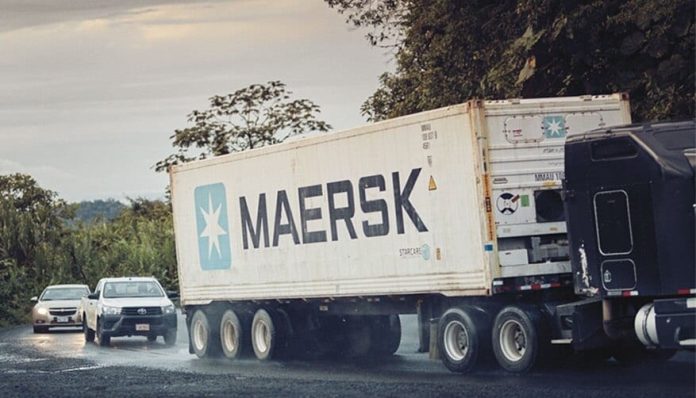Digital transformation of the global maritime freight industry is gathering pace. A new report claims digital change in the shipping industry will expand in value-terms by around 10 per cent per year in the period to 2027, reaching about $38.4 billion in total.
Danish firm Maersk, one of the shipping industry’s leading proganists, is has just announced it is backing near-unicorn startup BlackBuck, which claims to have created India’s largest online marketplace for trucking, in its move into containerised trucking in the highly fragmented export-import (EXIM) market.
Maersk and BlackBuck said they will address key challenges around demand-supply visibility, real-time tracking, and improving asset utilisation by creating better network visibility for customers. The deal amplifies Maersk’s own efforts towards accelerating innovation in the logistics space.
The Indian government has set ambitions to reduce logistics cost from 14 per cent of GDP to less than nine per cent by 2022. BlackBuck is seeking to capitalise on this trend, by bringing the offline operations of trucking online – “be it matching a shipper with a trucker or reshaping the infrastructure around trucking to facilitate payments, insurance, and financial services,” as Maersk puts it.
The new platform will be owned and operated by BlackBuck with Maersk supporting with development of “compelling industry-specific solutions”, specifically for containerised trucking, as it comes in contact with shipping-based freight logistics. It will be made open to the whole industry, said Maersk.
The new analysis, from Transparency Market Research, says the shipping industry is increasingly dependent on digital technologies, with North America and Europe leading the charge.
“The digital transformation of maritime freight has drastically improved the efficiencies of marine freight companies by enabling the integration of artificial intelligence technologies, blockchain, Internet of Things, and robotics with shipping models. These technologies help marine freight companies in long-term traffic forecasts and intelligent coordination models,” said Transparency Market Research.
Arjun Maharaj, head of sales for Maersk in South Asia, said: “Our customers are dealing with fragmented vendors with varying service levels of communication, [and] geographical, financial and infrastructural disparities. [This is] resulting in sub-optimal supply chains. Maersk has committed to working with partners who understand these challenges, match our set of values and have expertise in both logistics and technology.”
Ramasubramaniam B, co-founder and chief operating officer at BlackBuck, commented: “We have developed our robust product and technology that maximises the billable kilometres of a truck, delivering higher realisation to the truck owners and driving a low-cost transportation network to the shippers. Our product will add significant value to the EXIM containerised trucking industry in India. Maersk will help us transform this space.”

